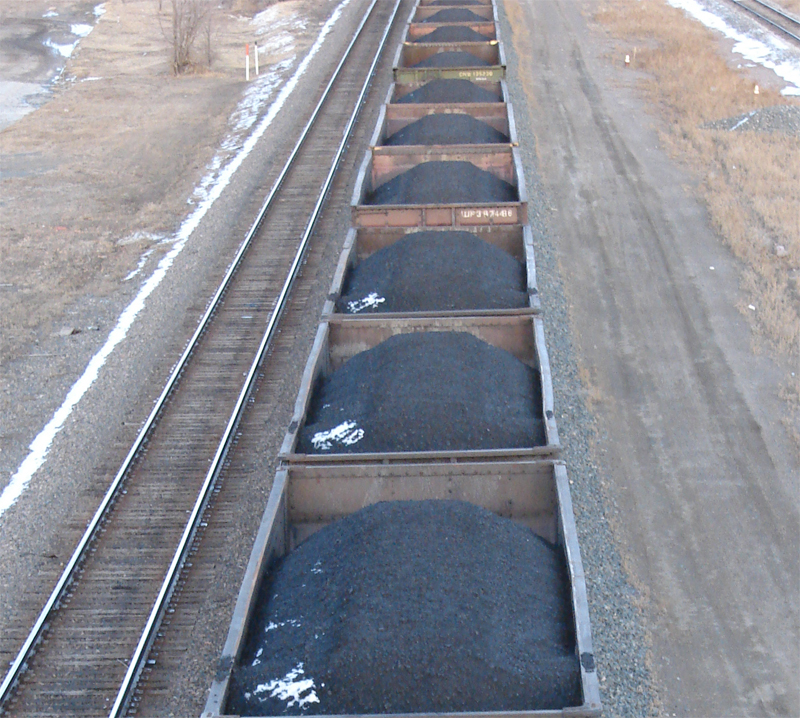Imagine seeing big increases in your monthly electricity bill.
Picture the loss of thousands of jobs in Colorado and the West.
This could be our world if the Environmental Protection Agency (EPA) goes through with its so-called Clean Power Plan to reduce carbon emissions from the nation’s power plants. The rule will hit coal-dependent states, like Colorado, especially hard.
Clean high-quality coal provides about 64 percent of our electricity here. As a result, our electricity rates are below the national average. That will change dramatically under the new rules, which will phase coal out of our energy mix. It’s no secret: Even the President has acknowledged that this new rule will drive up the cost of electricity. And a study just released by NERA Economic Consulting finds that Colorado is one of 43 states that will suffer double digit rate increases.
![]() As coal is phased out, the jobs and the revenues for schools and state government will go with it. Our state’s coal industry accounts for nearly 24,000 jobs including those in support industries such as transportation, power plants, equipment sales and professional services. Coal mining jobs are a mainstay of rural economies where wages and benefits together can top $116,000 a year. The industry also pays millions of dollars in federal and state royalties, property and severance taxes that support Colorado public schools, state and local governments. Yet production has fallen by 40% since 2004 due in part to the threatened EPA actions and state laws discouraging coal use. Production has the potential to fall much further if EPA’s multi-billion dollar regulatory program becomes law.
As coal is phased out, the jobs and the revenues for schools and state government will go with it. Our state’s coal industry accounts for nearly 24,000 jobs including those in support industries such as transportation, power plants, equipment sales and professional services. Coal mining jobs are a mainstay of rural economies where wages and benefits together can top $116,000 a year. The industry also pays millions of dollars in federal and state royalties, property and severance taxes that support Colorado public schools, state and local governments. Yet production has fallen by 40% since 2004 due in part to the threatened EPA actions and state laws discouraging coal use. Production has the potential to fall much further if EPA’s multi-billion dollar regulatory program becomes law.
Some Colorado public officials claim that the state is “ahead of the curve” in meeting EPA’s rules, the result of laws mandating higher cost energy sources like wind, solar and natural gas, all at either taxpayer or consumer expense, or both. Despite these assurances, it turns out that the state laws enacted in anticipation of the EPA rulemaking may not receive full credit. EPA’s rules will require an additional 35% reduction in Colorado’s carbon emissions and will not grant credit for actions taken prior to 2012.
What will be the impact on rates?
Colorado’s “forward looking” policies include the 2010 Clean Air Clean Jobs Act, which will force the premature retirement of about one-third of Xcel’s coal generating capacity in Colorado, according to the Colorado Consumer Coalition.

Consumers will face more than one rate increase due to this law in the years to come, as the last power plant is not scheduled to close until 2017. Xcel has already applied for a 4.9 per cent rate hike to cover implementation costs. Pueblo residential consumers of Black Hills Energy have already seen their rates rise substantially as part of the transition away from coal. With a poverty rate of 18.1 per cent, low-income customers in Pueblo – like those living below the poverty line throughout Colorado – struggle daily with whether to pay the power bill, the rent, or put food on the table.
If the Obama/EPA rules become final, there will be a double whammy of pain to come.
Worst of all, the rules won’t reduce carbon in any meaningful way. Even EPA admits that full implementation will impact global carbon emissions by less than 1 percent! Emissions from China and the developing world will more than offset the tiny reductions achieved by the rule.
New polling data from the Partnership for a Better Energy Future shows that:
· A majority of Colorado voters believe the United States cannot afford new costs and potential job losses resulting from the EPA regulations.
· Nearly half of Colorado voters say they are not willing to pay $1 more for energy under the EPA regulations.
This country needs an energy policy that embraces common sense and reality, while encouraging the development of technologies here at home that will allow Colorado and the nation to continue to harness our most abundant, reliable and affordable resource. The proposed carbon regulation scheme will drive rates through the roof and, like the movie, “Thelma and Louise,” Coloradans over the cliff.
Stuart A. Sanderson is president of the Colorado Mining Association (www.coloradomining.org).


